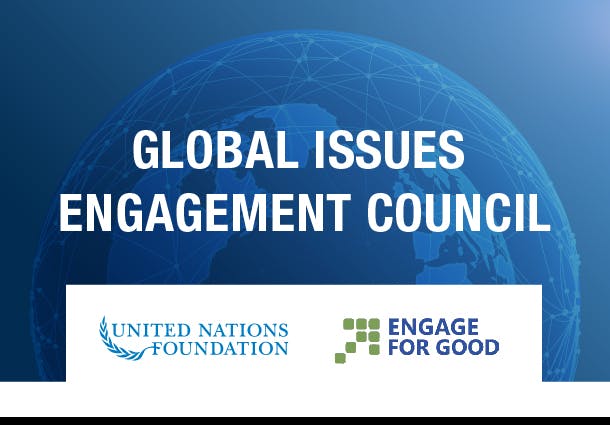
The best things in communications happen when people come together to share what’s working, and what’s not, and to share across organizational boundaries. We witnessed the power of this reality as some of the best and brightest minds in brand engagement met last Friday at the United Nations Foundation in Washington, D.C., for the kickoff of the Global Issues Engagement Council. This informal meeting was an open discussion about encouraging cross-sector partnerships for social good. Each of these people recognized the importance of working toward global goals, collaborating across communities, and encouraging brands and partners to step up their efforts to help create a better world.
Here are seven quick takeaways from last week’s spirited session.
- CSR is no longer a nice-to-have. It’s a must-have.
Consider corporate social responsibility (CSR) mandatory if you want to retain customers and employees. If you’re not talking about how you’re working toward achieving the global goals, you’re losing out on opportunities.
- Sustainability is a competitive advantage.
Getting the private sector to realize that sustainability equals competitive advantage is key. Brands are missing out on this. The moment your CEOs and your employees and your consumers realize this, you really have success.
- There are lots of problems in the world. But lots of them are solvable.
The world is facing an unprecedented number of challenges. The number of issues can be overwhelming. But it’s important to remember that they are solvable. Narrow your focus until you find the one (or two or three) that your organization can focus on and where you can have the greatest impact.
- You have to fall in love with the problem before you fall in love with the solution.
One of the participants raised this very important point. Buy-in (from executives, employees, shareholders, and customers) is key to making sure that an organization has authentic impact on a global issue. Make sure the issue or issues you’ve chosen are ones that resonate with your brand. Make them meaningful to your company, your employees, and your public.
On Social Media
- Social media is a tool for word-of-mouth marketing.
The message is more important than the packaging. Audiences are often turned off by anything that is just “marketing” – they are looking for content to connect to and people with whom they can relate.
- It’s not just about talking. It’s also about listening.
Social media is one of the best ways to tell what your brand’s consumers are thinking. It’s a way to get a daily pulse check on how your content is landing with your audience.
- Sweat the small stuff.
When you have less than a minute to capture someone’s attention, make sure you have everything right. Nail it – or you miss out on an opportunity you might not get back.



 View All Blog Posts
View All Blog Posts